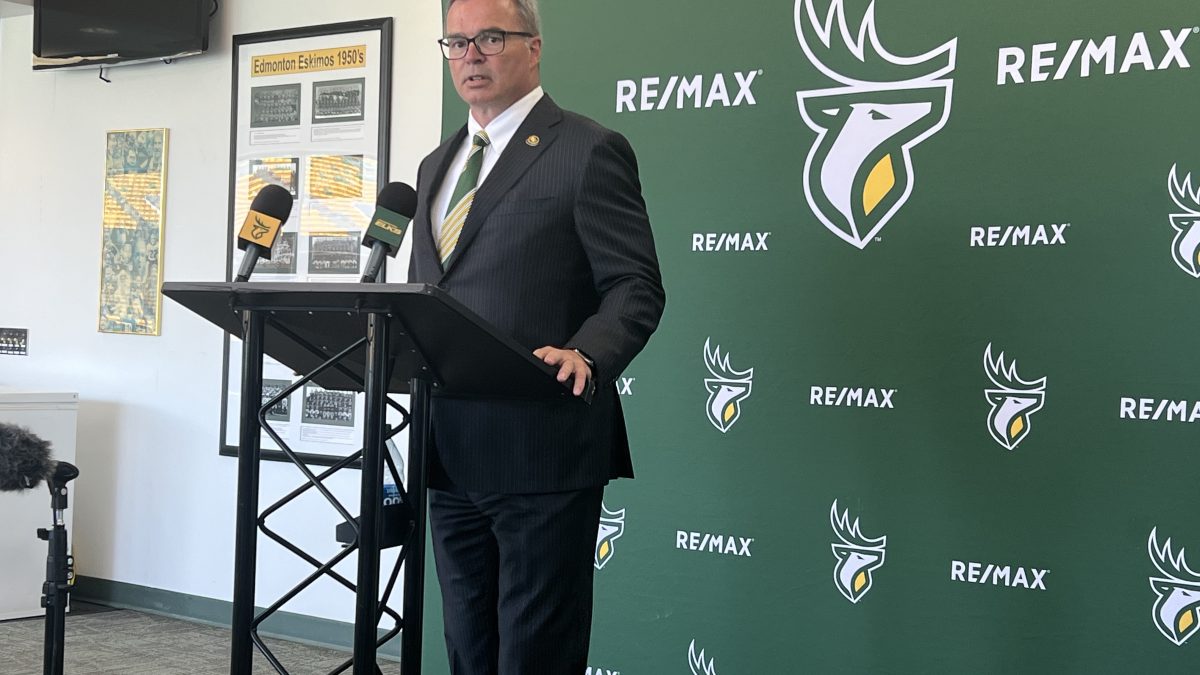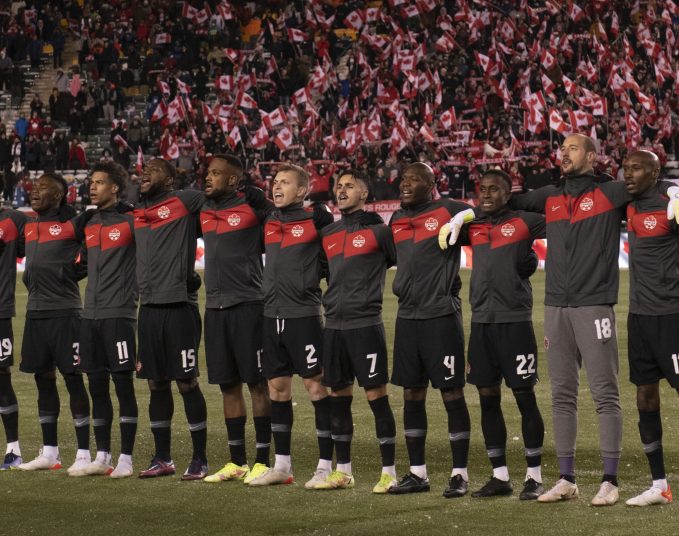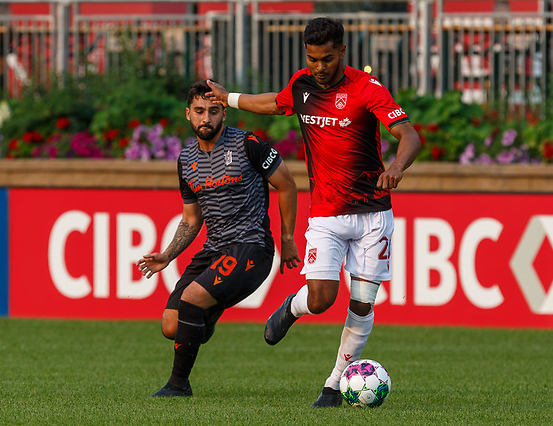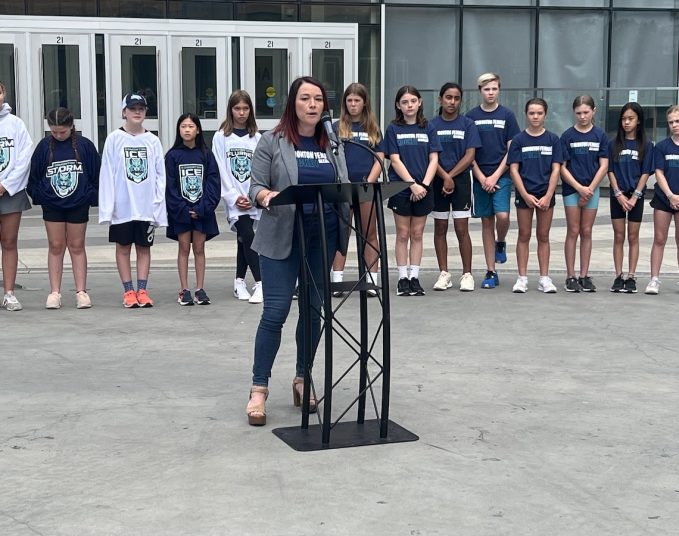A little less than two weeks ago, the provincial government announced it would not support an Edmonton-Calgary joint bid to host the Commonwealth Games, killing the venture before it ever left the exploratory stage.
This week, the Edmonton Elks announced that the board had agreed to a deal with Victor Cui — that he would step down as the team’s president and CEO.
How are these two things related? Both have some real-world impacts when it comes to Edmonton and the events that it wants to attract. The fact that Victoria, Australia dropped its plans to host the 2026 Commonwealth Games — and then Alberta followed suit by stating 2030 was too rich for its blood — is further evidence that sweeping, multi-sport events are less and less attractive for cities. For a city like Edmonton, which has prided itself on being a “big event” city (Women’s World Cup, the Commonwealth Games back in ‘78 when they actually were a thing, World Championship in Athletics, World Junior Hockey Championships, the list goes on), this marks a sea change.
As well, the Commonwealth Games have a unifying theme… of colonialism. That might not be such a great idea in the 21st century. We should be better than having an event where the only invited nations are the ones with the King’s head on their currency.
But, let’s get back to Cui. When he was hired in early 2022, he was heralded as a breath of fresh air for a football franchise that was seen as catering to a dwindling audience of old, white men — the demographic who can’t wait for yet another Tom Cochrane halftime show.
Cui was raised in Edmonton, passionate about football, but then went to Asia to make his fortune in sports. He co-founded a mixed martial arts empire in Singapore. He’d witnessed first-hand how the massive Chinese audience consumed sports.
And, when he returned to his hometown, he was tasked with much more than running a football team. He was plugged into this city’s (failed) bid to host World Cup matches in 2026. He worked with the City to find new ways for Commonwealth Stadium to be utilized. More concerts. More unique events, such as the World Cup Big Air snowboarding tour stop that rocked the stadium this past winter. A man-made slope that stretched from above the top row of seats down to the playing surface? That was out-of-the-box thinking.
And Cui wanted to bring in more — from ultimate frisbee to multicultural musical events.
“Anything that requires our field of play,” Cui had told our sister publication, Edify. “There are some exciting new sport opportunities out there that we can work with.”
Now that Cui is gone, and the Elks are two to three weeks from bringing in an interim CEO, how does this work continue?
“It’s a City-owned building:” said Tom Richards, the chair of the Elks’ Board of Governors. “We’ve got senior staff who are capable of picking up the baton, of any initiatives that got started. So, I would fully expect that anything that’s got some traction, we’ll continue to pursue it.”
With events like a soccer World Cup or a Commonwealth Games off the table, those who promote the city to the world know that they have to face some harsh realities — and to understand that the business of attracting events to our city is changing.
From Janelle Janis, Explore Edmonton’s executive director of event and business development:
“I think it all comes down to being thoughtful in what events we’re going after and the why behind it. Cities are becoming more strategic in terms of what makes sense for them to host given their current infrastructure. But we also know that infrastructure needs an investment plan for it to stay relevant and meaningful in our community. Look at Commonwealth Stadium for instance – we wouldn’t have that stadium without hosting the Games in 1978, but it desperately needs updating to catch up to today’s standards – both from an event producer’s standpoint and also from a fan engagement standpoint. You ask most Edmontonians and they will recall a special experience they had inside of that stadium – and it deserves a plan to host future annual and one-off events in, events that people care about and events that there’s some hype around. In 1978 we built it, and they came. But it’s 2023 now and we need to re-invest in it for them to come again.”
And, while the Commonwealth Games 2030 plan is done, the idea of partnering with other cities to host events is going to be the new normal. The recent World Junior Hockey Championships were co-hosted with Red Deer. And Edmonton will need to look for new partners in the future.
“For certain events, regional hosting can make a lot of sense – it doesn’t even need to be a multi-sport event for it to be a successful model – IIHF World Juniors split between Edmonton and Red Deer was a great initiative to share the costs and the return on investment from the event — minus the pandemic,” Janis wrote in an email. “For major multi-sport events, a multi-city/multi-community hosting plan is starting to become the norm and it should be based on what each community already has that needs upgrading or what new investment needs to be developed to help serve their community after the event. I think if Alberta wants to host another large, generational multi-sport event, then we need to develop a provincial hosting plan that communities are bought into and ensure it is a sound economic and social investment – if it’s done thoughtfully, I think it’s achievable.”
Janis said she could not comment on the Elks and Cui parting ways. Obviously, it’s a thorny issue. But it was a move that goes a lot further than moving the deck chairs on a football team.
Savvy AF. Blunt AF. Edmonton AF.




